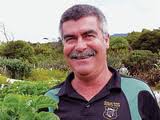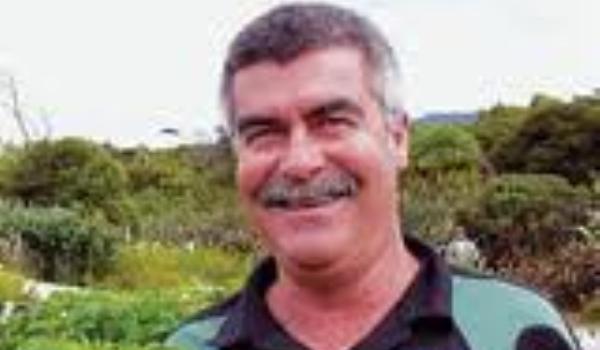
Sustainable Waikato does an assessment of all candidates for Hamilton City and Waikato Regional Councils. They recently sent a questionnaire to all Waikato Regional Council 2016 candidates. From mid-September, they’ll be releasing the summary based on those results.
Raglanite Fred Lichtwark has provided us with his responses to their survey.
WRC candidate name: Fred Lichtwark
-
What do you think are the top three challenges facing the Waikato region that WRC could influence over the next five to ten years?
Water quality, sustainable farming and climate change.
-
Do you believe the Regional Council has a role in economic development and in what ways?
The role of regional councils is to listen and support industry, businesses, communities and people to make positive change to achieve sustainable economic outcomes based on sustainable resource use, environmental accounting and clean technology.
-
What do you consider to be the main biodiversity and biosecurity issues within the Waikato region, and how can WRC best address them?
There are multiple threats to terrestrial, aquatic and marine biodiversity from plant and animal pests, human, animal and industrial wastes as well as unsustainable extraction of resources – such as water. These need to be prioritised and effective action taken to protect biodiversity and prevent biosecurity risks. Waikato Regional Council can best address them by seeking scientific and technical advice from its staff and other agencies and following that advice.
-
What are the major challenges to improving freshwater quality in the Waikato region, and, as a councillor, what would be your priorities?
The major challenges to improving freshwater quality in the Waikato region is a lack of sustainable farming practices, intensification of land use, outdated sewerage systems and lack of enforcement by Waikato Regional Council. Communities have the knowledge and ability to improve freshwater quality through riparian planting and Council should actively support this as it is a win-win for agriculture, water quality, the environment and communities.
There is no need to prioritise any of these as they can all be achieved within existing budgets, if only Waikato Regional Council uses the expertise and labour in its communities and implements its own rules – which don’t need major plan revisions only effective enforcement.
-
What are the priority coastal marine issues in the Waikato region, and what do you think WRC needs to do to address them more effectively?
Waikato Regional Council have neglected their responsibilities out to the 12 NM limit and there needs to be more community control and management of these areas – Council support of communities and the issues they face is important eg coastal erosion, water quality, dredging, sand mining, exploration permits etc
Communities know the problems and can implement more appropriate, innovative and adaptive solutions than Waikato Regional Council. The role of Waikato Regional Council should be to provide communities with the resources, knowledge and advice to overcome coastal marine issues.
-
Do you think WRC has a responsibility to have policies to mitigate climate change and manage its impacts? Could you please give some examples?
Yes Council should have policies to mitigate climate change and to manage its impacts. Agriculture is the largest climate change driver mainly due to methane production from animals. Riparian planting of farm streams and wetlands helps to mitigate these effects. Increased stocking rates, intensification of land use, pasture management regimes and fertiliser rates all impact on the environment and these effects need to be reversed.
Waikato Regional Council is also responsible for the second largest driver of climate change – transport. It needs to use its influence on the Regional Transport Committee to switch transport to more sustainable modes and to combine the budgets of public transport, education and health transport into a public transport system capable of carrying 10 times as many passengers more effectively and efficiently.
-
What do you see as the priorities for transport in the Waikato region over the next five to ten years, and how could WRC bring about transportation improvements?
In addition to the measures mentioned above, Waikato Regional Council should support infrastructure and networks for electric vehicles. Waikato Regional Council should also use its influence to achieve locations of services, housing and employment that minimise the need for car and cargo transport.
-
How do you think WRC can best assist community groups and individuals who undertake environmental initiatives?
Groups and individuals tend to have lower overheads and work more efficiently and sustainably to achieve better outcomes more cost-effectively than Council can. Council’s Integrated catchment management budget should be transferred to community groups.
-
What can WRC do to support businesses, schools, families and individuals to make more sustainable choices?
Listen to communities and provide support (financial, technical and scientific) to those businesses, schools, families and individuals to make positive changes that are community-led not Council-imposed. Waikato Regional Council could provide and facilitate more information and services to make it easier to reuse, recycle, grow organic food locally and improve public transport systems.
-
What have been your most significant contributions to enhancing environmental, social, cultural and/or economic wellbeing in the Waikato region?
I’ve been managing award winning Whaingaroa Harbour Care in Raglan for more than 20 years. During that time I’ve worked alongside 60 + landowners to change their farming practices. By retiring less productive areas of their farms and fencing and planting waterways, these landowners have increased their productivity, reduced their costs and improved water quality.
The downstream benefits of this have been incredible.
-
70 + people have gained skills working with Harbour Care.
-
More than 1.5 million native trees have been planted along streams, harbour edges and wetlands.
-
Freshwater and harbour water quality has improved along with fishing.
-
Tourism to Raglan has increased and the local economy has improved.
-
Many care groups throughout the Waikato and NZ have been inspired by Harbour Care’s achievements and I have provided mentoring.
-
Awarded the Landcare Ambassador Award and Green Ribbon Award.
-
Featured in magazines and media including; Pure NZ, NZ Exposed, Number Eight Wired, the Breakfast Show, Water Whisperers, Kiwi Maara and Middle Earth.
-
Whaingaroa Harbour Care has also been a topic of research by the Parliamentary Commissioner for the Environment and World Wide Fund for Nature.


Great work Fred.Whats your position on aerial 1080 as a sustainable pest control option
I hear Fred’s off-line until 16 September.